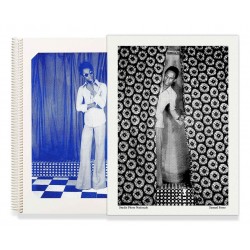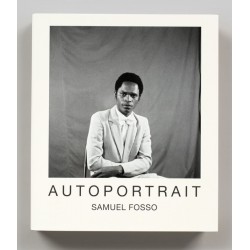No books
List of photobooks by photographer Fosso, Samuel
Samuel Fosso is a Cameroonian and Nigerian photographer, a major figure of the African photography landscape.
Samuel Fosso had a very difficult childhood, loosing his mother at age 5 and growing up during the Nigerian Civil War (Biafran War); loosing many relatives to the war, events lead him to live in the forest with his grand-parents, then to move to the Central African Republic, where he quickly becomes, at age 13, an apprentice with a local photographer in the capital Bangui.
In 2014, he has to run away from Central African Republic because of a civil war, and he loses the majority of his negatives and work at that time.
In 1993, French photographer Bernard Descamps, scouting talents for the first édition of the "Rencontres Photographiques de Bamako" festival discovers his work; this will be his first major exhibition. Since then, his work has been praised and exhibited all over the world: Africa Festival in London, Centre National de la Photographie and Centre Pompidou in Paris, Rencontres d'Arles festival, Fondation Zinsou in Cotonou, etc.
Self-portraits are an important part of his work; he uses make-up, costumes, props and accessories to pose as various characters or celebrities (Malcolm X, the Pope, Mao, etc.) and does not hesitate to cross-dress (Angela Davis).
Among the books about his work, two recent publications by Steidl, both released in 2020: "SIXSIXSIX" and "Autoportrait".
© Self-portrait.
Studio Photo Nationale (*signed / signed...
Presentation by Sébastien Girard: " After Samuel Fosso's studio and home were attacked by looters in 2014 in the war-torn Central African Republic, the photo-journalists Jérôme Delay and Marcus Bleasdale, with the help of Peter Bouckaert (from the Human Rights Watch organization), rescued Samuel Fosso's negatives from destruction and sent them back to...
120,00 €Book available with different optionsPresentation by Steidl: " Autoportrait is the first comprehensive survey of Samuel Fosso's multifaceted oeuvre. Since the mid-1970s, the artist has focused on self-portraiture and performance, envisioning variations of identity in the postcolonial era. From Fosso's early self-portraits in black-andwhite from the 1970s to his recent, continually inventive...
75,00 €In Stock


